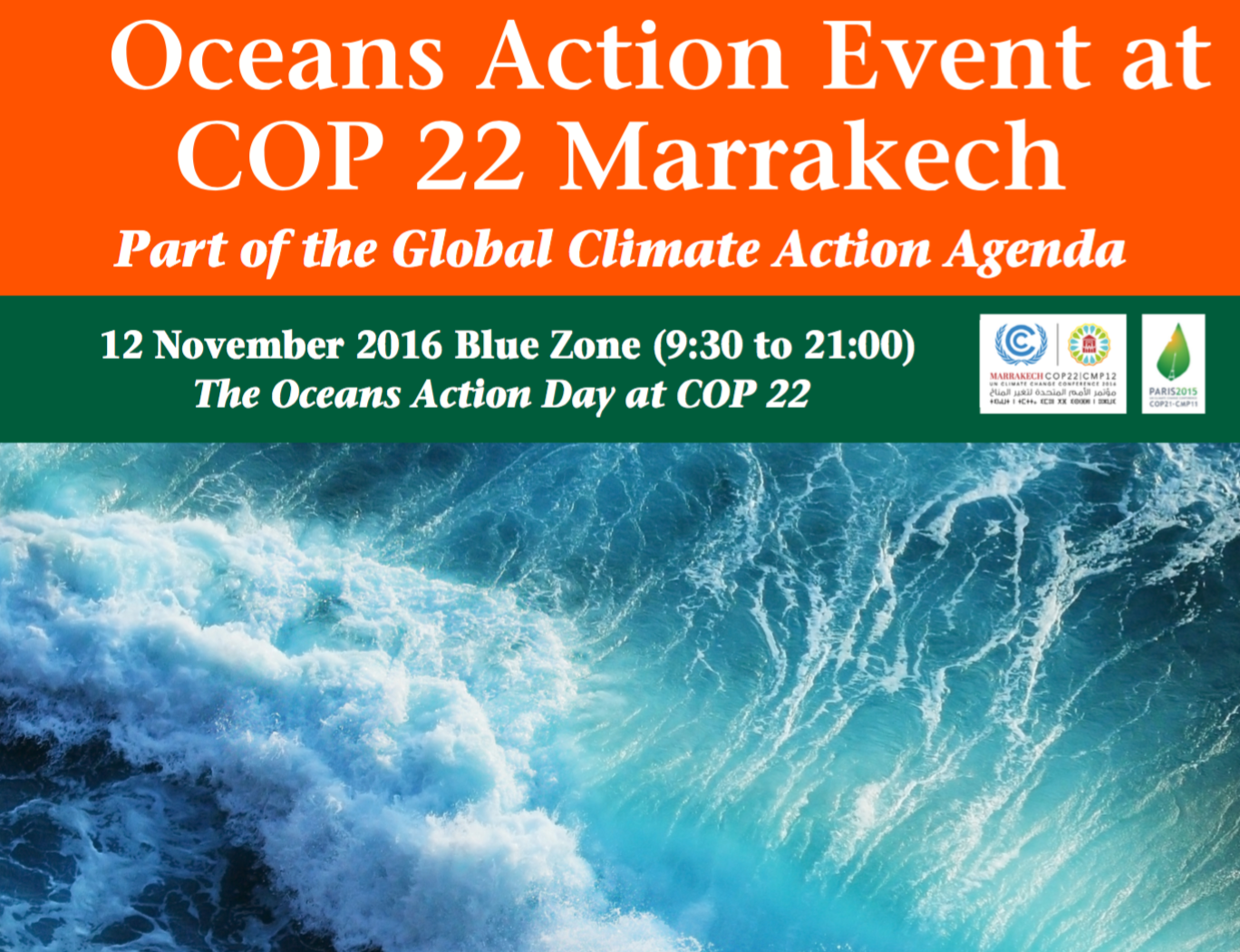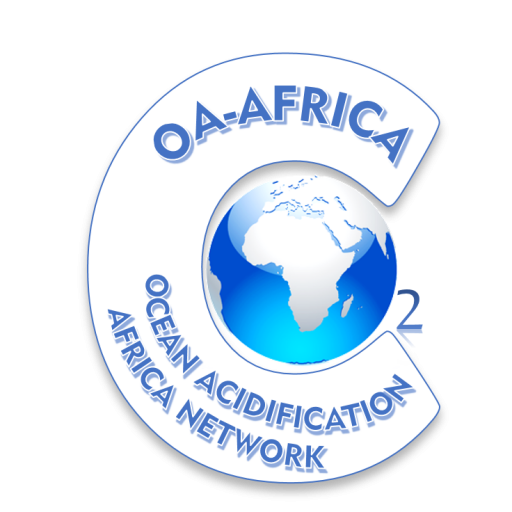Meetings and Workshops
January 2021 – Ocean Acidification Awareness and Research in Africa – Side Event at OA Day of Action in Liberia
At the upcoming OA Day of Action to be held in Liberia on 8 January 2021, 9am GMT OA-Africa is hosting a side event event in partnership withThe Ocean Foundation, the IAEA OA-ICC, Future Earth Coasts, Environmental Protection Agency of Liberia, National Fisheries and Aquaculture Authority, and the Liberia Maritime Authority. The objective of the OA-Africa side event is to promote and facilitate a community of awareness around ocean acidification to communicate, develop, and facilitate international activities on ocean acidification, including science, capacity building, and communication. We find that the work on ocean acidification is better appreciated when scientists, industry practitioners, and policymakers collaborate and speak a common language.
We hope participants will be able to strengthen existing collaborations and develop new ones by:
- Improving Capacities in Developing Countries: Improving capacities in the African region to undertake further research is urgently needed. This would include not only training future scientists but also strengthening capacities of research, scientific, oceanographic and socio-economic institutions in Africa. Technical cooperation with and assistance to regional institutions with relevant experience would be a good step forward.
- Raising Awareness. While ocean acidification is now known among scientists, the general public and even many policymakers are still mostly unaware of it. Awareness-raising efforts should build on the support of scientific endeavours and could include preparation of easy-to-understand technical reports written for the layperson, documentaries and publicity in related events and fora including highlighting options to avoid adverse impacts of ocean acidification on marine life and ecosystems.
- Information Generation and Dissemination. Recent reviews of changing ocean chemistry include the recently submitted Assessment of Assessments by the Group of Experts set up by the General Assembly, the Climate Change Science Compendium by UNEP and the Fourth Assessment of the Intergovernmental Panel on Climate Change (Chapter 5 of Working Group 1). Regular systems for monitoring changing ocean chemistry are urgently needed. Furthermore, the scientific study of ocean acidification and impacts on marine ecosystems, biodiversity and marine life is still in its infancy and critically needed to develop and implement adaptation solutions. The full range of possible environmental and socio-economic impacts of ocean acidification is also not well understood, and research on these topics, scant at best, is just as important.
- Contribute to the development of information and data products that would inform policy and the public concerning ocean acidification and the implications for the overall ecosystem health of the impact. To understand the chemistry of ocean acidification, to an extent, one needs data on temperature, salinity, oxygen, pressure (depth), and carbonate system constraints (i.e., pH, pCO2, Alkalinity, DIC). Linking chemical changes to impacts on marine ecosystems and associated services requires biological observations and experimentations. Collection of these data, nonetheless, represent a significant public investment in developing the needed capacity and infrastructure. It is critically essential that researchers and industry practitioners can readily access and use ocean acidification information.
- Providing input to future case studies for monitoring and research projects to fill gaps in knowledge and data.
The Ocean Foundation (TOF) launched the OA Day of Action on the 8 January 2018, or 8.1, which represents the current average pH of the ocean. For the past two years, TOF has celebrated the OA Day of Action as an event in Washington DC for government representatives from embassies to learn more about OA and to encourage to build both technical and financial capabilities to address the effects of OA. This side event would showcase the scientific efforts being made to monitor and research ocean acidification throughout Africa, by OA-Africa members.
|
Event address for attendees: |
https://iaea.webex.com/iaea/onstage/g.php?MTID=e78cdbf3782135c2f87dfe004f6dbcb9e |
|
|
Date and time: |
Friday, January 8, 2021, 9:00 am Friday, January 8, 2021, 10:00 am |
|
|
Duration: |
6 hours |
|
|
Description: |
|
|
|
Event number: |
174 414 2740 |
|
|
Event password: |
@Liberia2021 |
March 2019 – African scientists to showcase efforts addressing ocean acidification at high-level ocean conference
Liberia is hosting the Blue Oceans Conference on 18-21 March 2019, providing a venue for stakeholders from various maritime sectors to discuss some of the main environmental threats facing African coastal countries, including climate change, pollution, unsustainable fishing practices, and maritime security. As part of this conference, members of the OA-Africa network, in cooperation with the Abidjan Convention, will organize a side event on 19 March to present the current status of ocean acidification research and awareness-raising efforts throughout Africa.
PRESS RELEASE: For any queries or for further details please contact – Sheck SHERIF, Conservation International (CI) Marine, Fellow/Consultant, Blue Oceans Conference 2019, Monrovia, Liberia

July 2017 – African Day of Seas and Oceans
On July 25, 2017, Africa celebrated the under the theme, ‘Harnessing the Blue Economy in Achieving the African Union Agenda 2063,’ and launched the 2015-2025 Decade of African Seas and Oceans.The celebration of Africa Day of Seas and Oceans is one of the recommendations of the 2050 Africa’s Integrated Maritime Strategy (AIMS). The 2050 AIM Strategy provides a broad framework for the protection and sustainable exploitation of Seas and Oceans of Africa. Protecting the ocean is everyone business – and so the responsibility of every African.
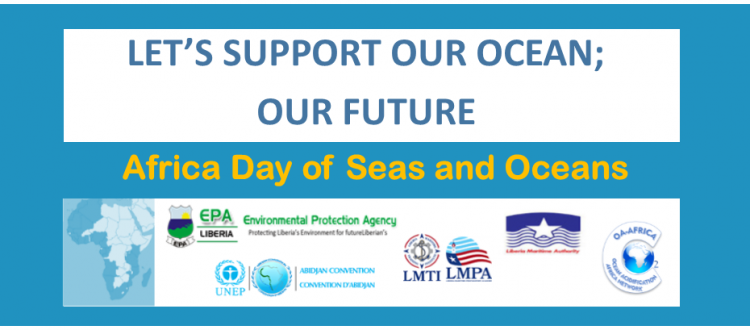
March 2017 – Ocean Action Hub
The Ocean Action Hub is hosting the Ocean Forum discussions, which aim to engage stakeholders in assessing the challenges and opportunities related to delivering on SDG14 implementation in the run-up to The Ocean Conference.
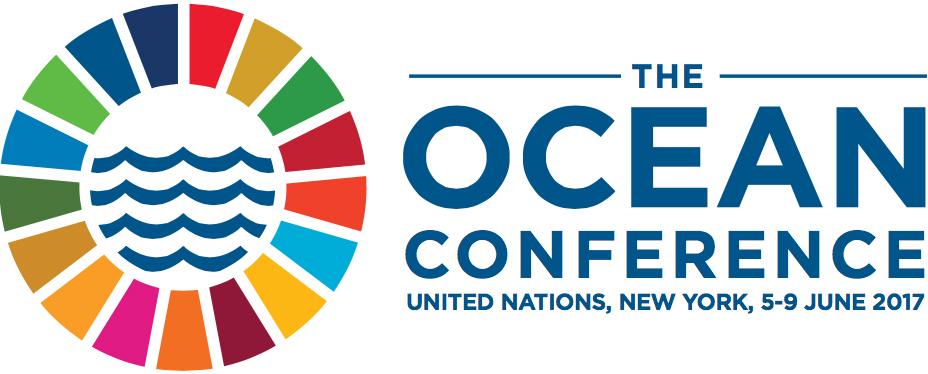
February 2017: OA-Senegal
From the 13th-16th of February at the Ecole Superieure Polytechnique of the Universite Cheikh-Anta-Diop in Dakar, Senegal, the OA-Africa Network had their first face-to-face meeting to discuss mechanisms for knowledge exchange between ocean acidification scientists across Africa and to build momentum for scientific action.
OA-Senegal was specifically designed to promote (1) capacity building, (2) regional and inter-regional networking, and (3) collaboration and data sharing. To achieve this, we developed a two-step approach:
*Practical Training Pathway: To provide a theoretical and practical training in the field of ocean acidification. This pathway was specifically aimed at early career researchers in West Africa
*Networking Pathway: To provide space for knowledge exchange between OA scientists across Africa and to build on the newly launched OA-Africa Network. Participants helped to identify future needs, collaboration opportunities, and potential funding avenues to maintain and expand OA research throughout Africa
While the majority of benefits associated with OA-Senegal will be felt across the African continent, this was a truly international effort that connected industry with academia and government. Funding was supplied by Future Earth Coasts, KOSMOS Energy, The IAEA Ocean Acidification International Coordination Centre (OA-ICC) and SOLAS and the logistics would have been impossible without support from the Ecole Superieure Polytechnique and the Institut of Research for Development
SOLAS generated an event report for the event which can be found here!


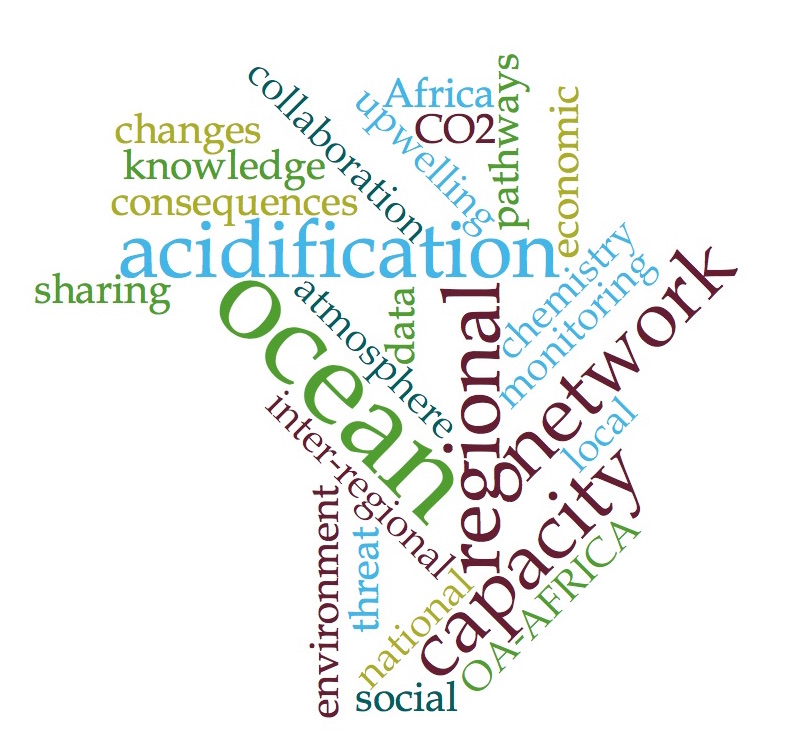

2016
October 2016 – OA-Africa Virtual Launch
A call was put out to all scientists conducting or interested in conducting ocean acidification monitoring and research in Africa were encouraged to join the first call for the OA-Africa network. The network is designed to provide a platform for sharing ideas, designing collaborative research programmes, troubleshooting challenges, and facilitating international collaboration and support.

November 2016 – COP 22
Held in Marrakech, the first-ever Oceans Action Day underscored the role of the ocean in mitigating climate change and regulating the climate while recognizing the challenges that ocean acidification and habitat degradation pose to the conservation and sustainable development of oceans and the livelihoods and well-being of coastal and island communities.
Several workshops have been held in during 2016 under auspices of the Global Ocean Acidification (OA) Observing Network to expand participation from African countries. This event at COP22 showcased those activities with testimonials from African scientists from Egypt, Namibia and South Africa about the importance of this work for building resilience to ocean acidification in the Global South
